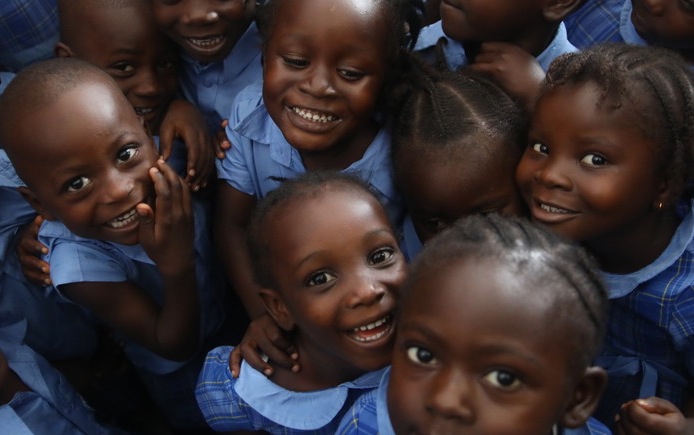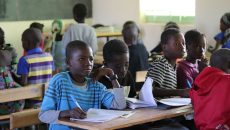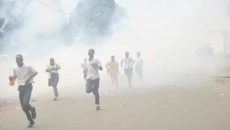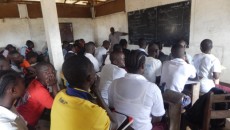As the first year of the Partnership Schools for Liberia program comes to a close, we at the Ministry of Education are taking stock of the successes from the pilot thus far, and working with both stakeholders across Liberia and international partners to chart the course forward.
Through the PSL program, we have partnered with eight education providers: some local, some international; some for-profit, some non-profit. Each with different models but all with proven experience delivering quality education and improving learning outcomes. During the first year, these 8 providers have operated 93 schools in 13 counties across Liberia, providing free, quality education to more than 27,000 students.
Following the first year, we’re seeing some very encouraging initial results.
According to data from an independent assessment, we’ve seen both increased enrollment and positive impacts on teacher behavior, including reduced absenteeism and greater time teaching. Teacher attendance rates are above 90 percent on average across all PSL schools – and are as high as 98 percent in the case of one provider. Teachers are also 9 percent less likely to be “off-task†or outside the classroom at PSL schools. These may seem like things that should be taken for granted, but they are no minor achievements.
To date, the program has also delivered much-needed resources, including desks, chairs, infrastructure, learning materials, a teacher for every classroom, and expanded teacher training opportunities. It has also generated a new appreciation for a longer school day, all without charging any fees.
Earlier this month, four of the eight providers in the PSL program released their own mid-line reports, assessing their efforts during the first year of the program and highlighting key successes in improving learning outcomes. It is deeply encouraging to see not only their commitment to measurement and evaluation but also their positive impact on crucial focus areas including literacy and numeracy, teacher training, and engagement of parents and communities in students’ learning.
Rigorous, independent measurement and evaluation has been built into the program from an early stage. We are currently awaiting the results of an independent assessment, being carried out by the Center for Global Development in partnership with Innovations for Poverty Action.
While we await those results, we will move into the second year of PSL with a modest increase in the number of PSL schools – from 93 to 200 – or about 7 percent of Liberia’s public schools.
In the coming year, we will prioritize reaching remote regions such as the South East, which has particularly acute needs.
PSL is an innovation that has the potential to accelerate the provision of quality education and ultimately make it accessible to all Liberian students in a way it has never been before. But this program is strictly evidence-based, so we will not move forward with any large-scale expansion until we have received the completed, independent assessment and can judge the impact of PSL on the students and the school system.
As we assess what the future of PSL will look like, what remains clear is that bold action is needed if we are going to properly educate and prepare our children for the future.
PSL is one crucial piece of the puzzle, but there are many other reforms that the Ministry has put in place that is equally important. We have launched an ambitious 3-Year Plan that includes increasing professionalization of teachers and principals across the country and conducting rigorous monitoring and evaluation to ensure we stay on track to reach our goals.
We have also undertaken an aggressive project to identify and remove ghost workers from the teacher payroll. To date, we have removed 1,900 ghost workers, which has led to US$2.5 million in annual savings that can be reinvested in education.
Through these reforms, we are working to truly transform our education system for the benefit of the first generation of Liberian children who have not known war or conflict. We hold the dreams and aspirations of this new generation in our hands, and it is our responsibility to ensure that they have every opportunity to succeed.
I look forward to continuing my conversations with principals, teachers, parents, community leaders, and civil society organizations across the country over the coming weeks and months to discuss how we can work together to ensure that we do not fail this or any future generation of children.
Featured photo by Bridge International Academies



